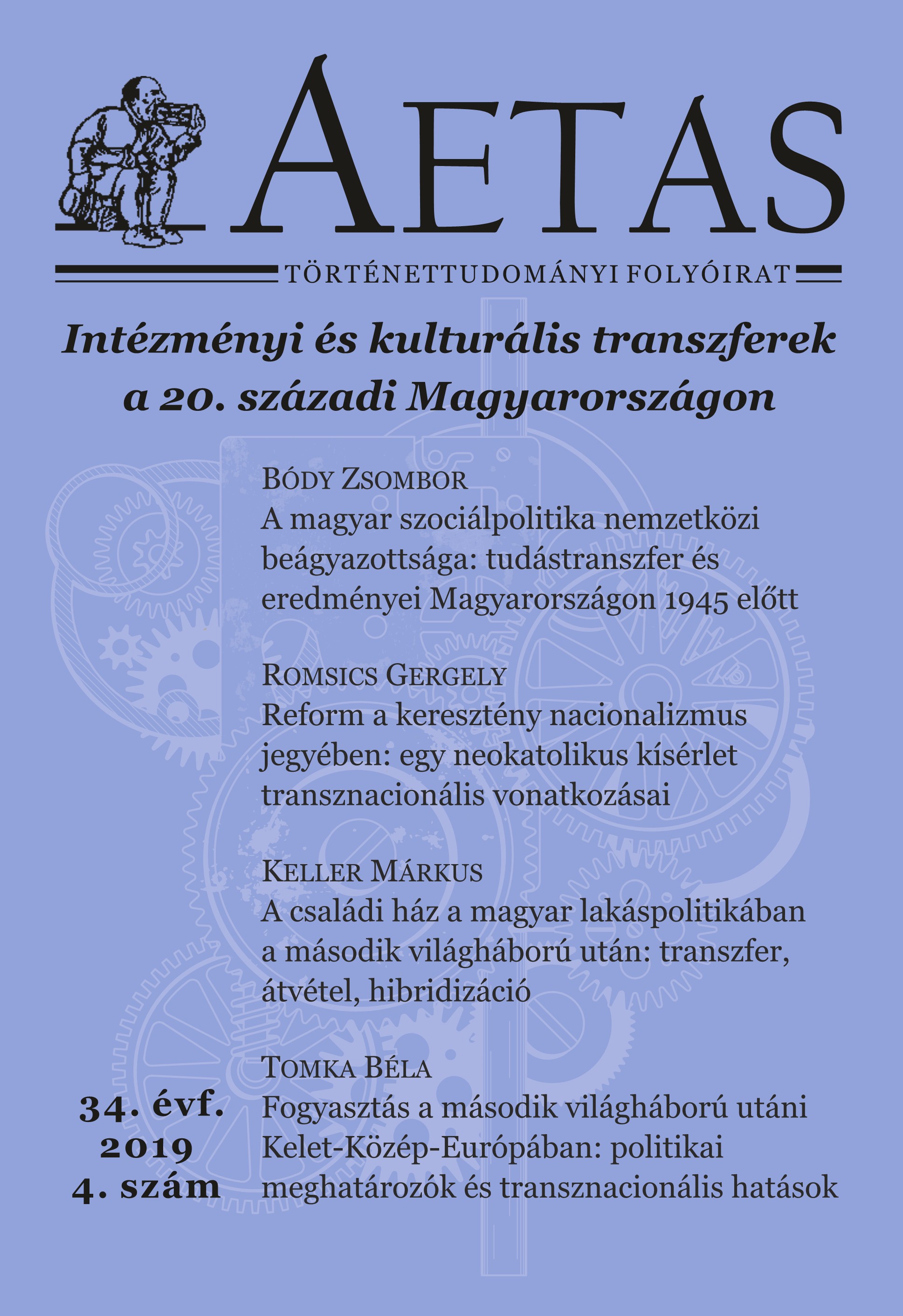Reform a keresztény nacionalizmus jegyében: egy neokatolikus kísérlet transznacionális vonatkozásai
Reform in the Name of Christian Nationalism: Transnational Aspects of a Neo-Catholic Political Enterprise
Author(s): Gergely RomsicsSubject(s): Interwar Period (1920 - 1939)
Published by: AETAS Könyv- és Lapkiadó Egyesület
Summary/Abstract: The essay seeks to broaden existing perspectives on the ideology of Neo-Catholic reform during the last years of the 1930s in Hungary. Following a decade marked by conservative consolidation, Hungary after the Great Depression experienced a shift towards various New Right positions, that became dominant in the establishment. Neo-Catholics gained considerable influence after the successive failures of Gyula Gömbös’ quasi-fascist reform plans and the subsequent Darányi government. The group of experts and activists around influential scholar turned propaganda chief Béla Kovrig presented in turn a program that sought to integrate corporatist, Neo-Catholic social thought and the autocratic trends observable in the decade – to which Hungary was no exception. The essay examines two attempts engineered by Kovrig – the integration of existing labour organizations and constitutional reform in the spirit of corporatism – in an effort to find the place of this ideological stream. Using previously unreferenced archival material, the essay contributes to the discourse by mapping transnational connections that shaped the ideas of Neo-Catholic reform in Hungary. The image that emerges is a complex one: it is clear that autocratic corporatists states left their mark as general ideals to be approximated, while at the level of specific policies, the totalitarian states – Italy and Germany – influenced practical thinking more, despite a refusal to accept a totalitarian turn in Hungarian politics.
Journal: AETAS - Történettudományi folyóirat
- Issue Year: 2019
- Issue No: 4
- Page Range: 27-48
- Page Count: 22
- Language: Hungarian

